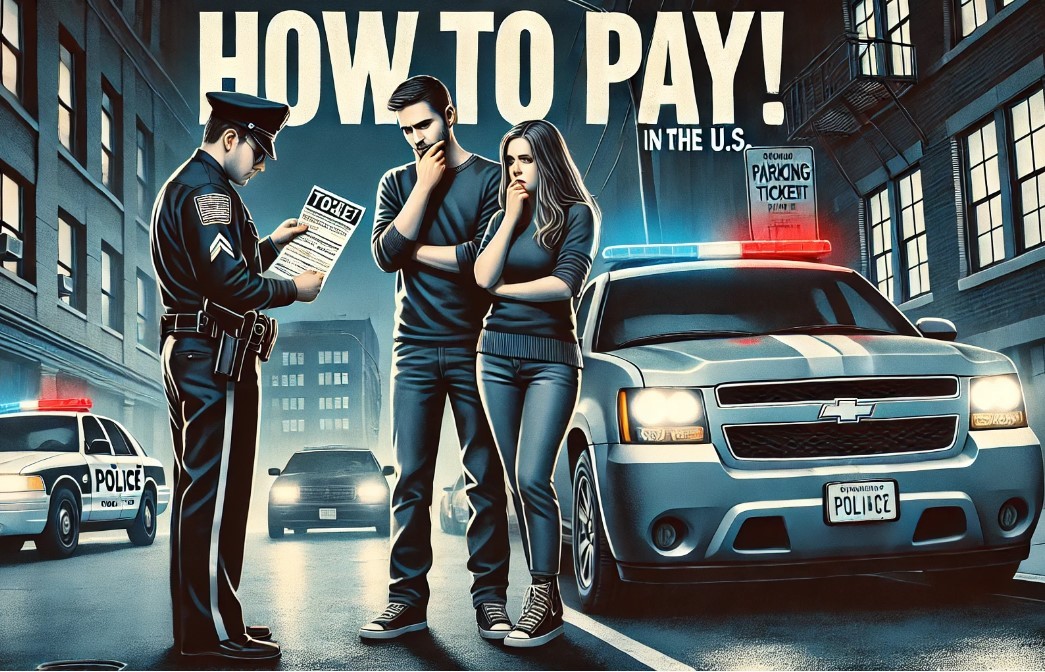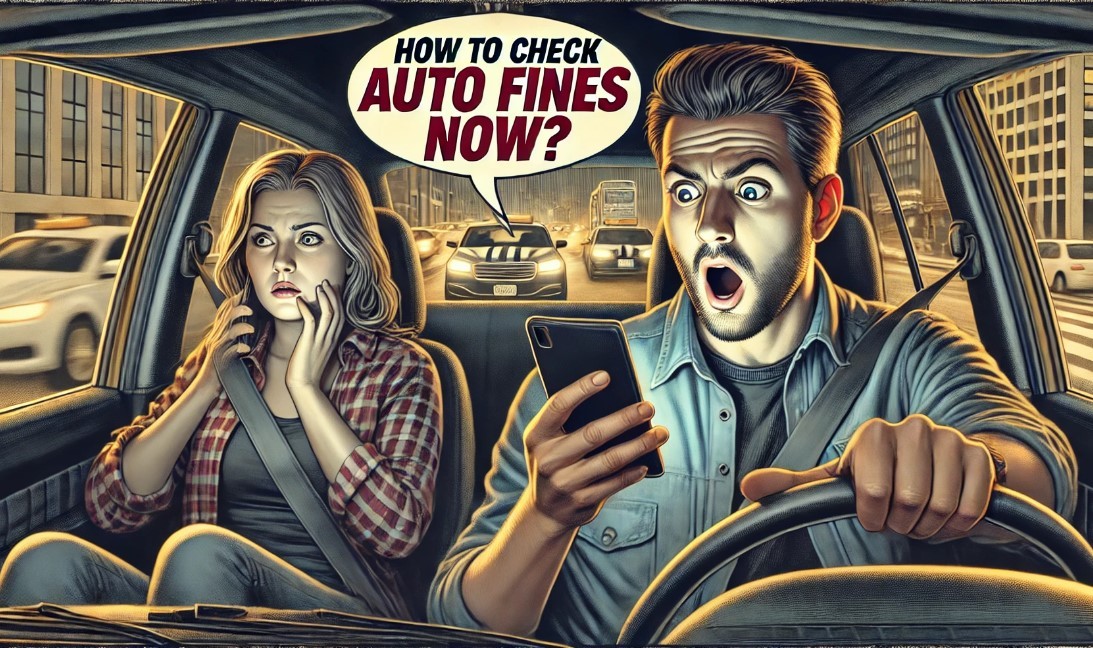How To Check And Pay My Traffic Fine Tickets Online in New Zealand
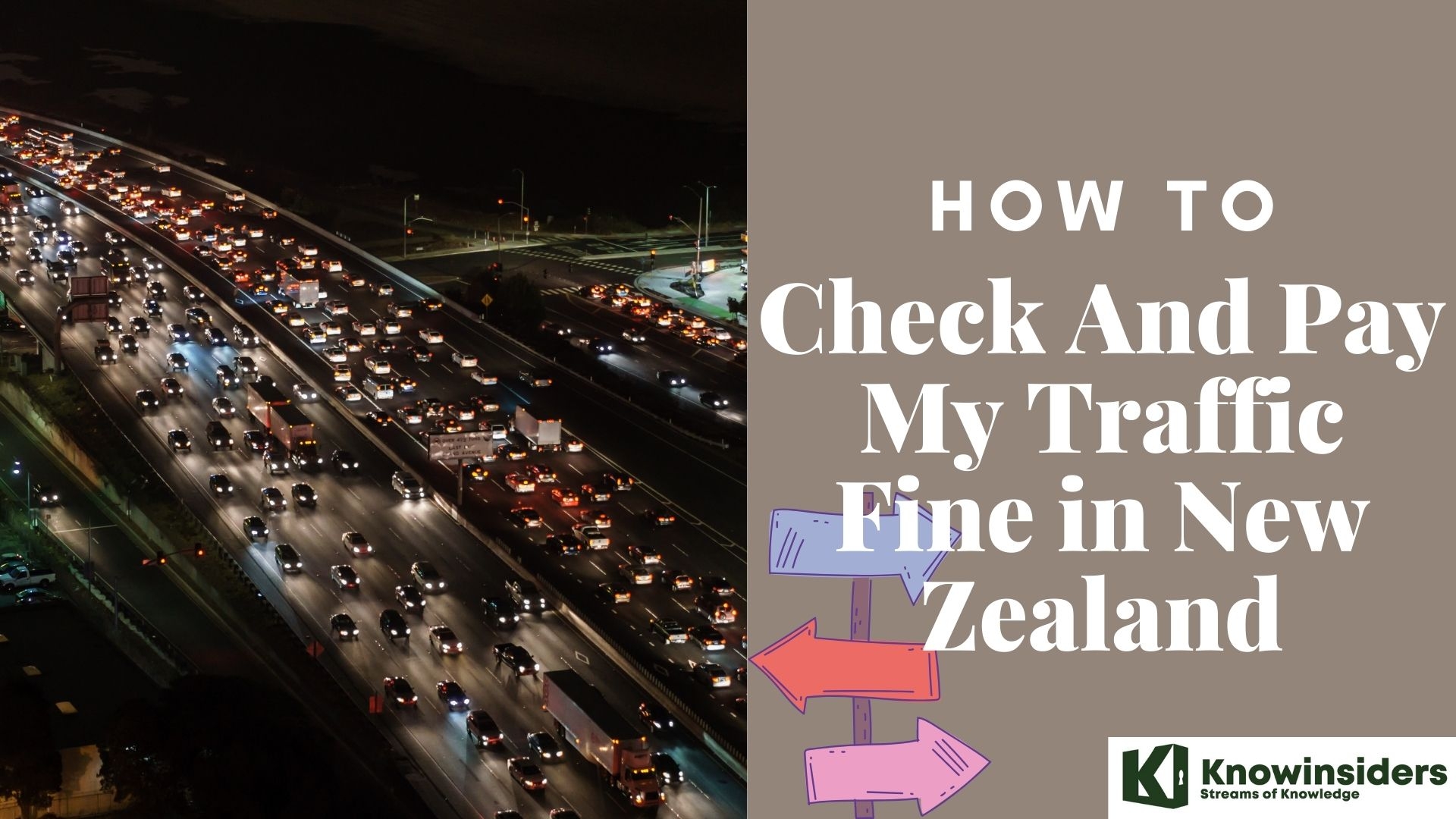 |
| How To Check And Pay My Traffic Fine in New Zealand |
| Table Content |
If you live in New Zealand, it is important to know the traffic rules and fine just in case you get caught and have to pay the tickets. Infringement offences include, for example, parking offences, toll offences, speeding and overloading offences, not having a current Warrant of Fitness or vehicle registration, and some lower-level drink-driving offences.
Take a look at the guide in the article below on how to check or look up and pay your traffic fine.
Driving in New Zealand: Road Rules and Laws
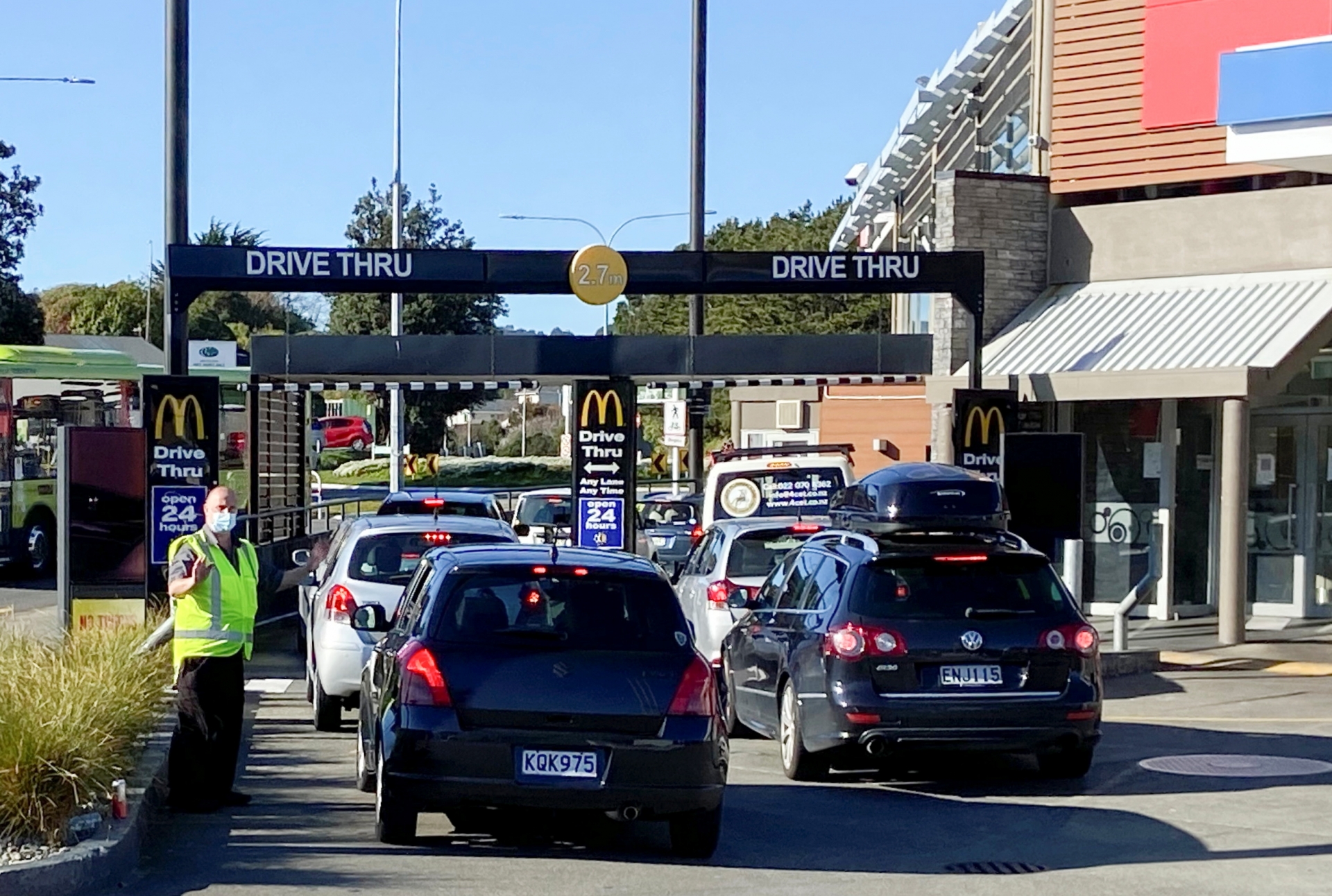 |
| Photo: Reuters |
New Zealand is a beautiful country, best appreciated by road.
Some road rules you need to know before attempting to drive on New Zealand roads include:You must drive on the left hand side of the road.
When turning, give way to all traffic that is not turning.
When the traffic light is red, you must stop. Green means go, and Orange means stop if you can do so safely.
The speed limit on the open road is 100 kilometres per hour (approx. 60 miles per hour).
The speed limit in urban areas is 50 kilometres per hour, unless otherwise signed.
If you are driving past a school during school hours, the speed limit is reduced to 40 kilometres per hour.
Drivers and passengers must wear seat belts at all times, no matter which seat you are sitting in.
You must give way to pedestrians if they are crossing on a Pedestrian signal at traffic lights, or crossing on a Zebra crossing.
You must not stop on a Motorway.
You must carry your licence on you at all times when driving.
Other things to keep in mind include:
Drinking and driving is prohibited in New Zealand. You can find out more information on the ALAC website.
Distances are measured in kilometres, not miles in New Zealand.
Yellow speed signs in rural areas signify the safe speed to travel around the upcoming bend.
Most vehicles in New Zealand are required to hold a current WOF (Warrent of Fitness) and Registration to be allowed to drive on public roads. If the vehicle is diesel driven, it may be required to hold current RUCs(Road User Charges).
If you hire a car in New Zealand, ensure vehicle insurance is included. Otherwise you may be liable for all damages caused by you if you are involved in a car crash.
If you do not obey all the New Zealand road rules, and are involved in a crash, your insurance may not cover you.
How to pay a fine online: Simple Ways
You can pay a traffic fine online, over the phone, from overseas, or in person. All fines need to be paid within 28 days. Use these methods to pay:
Reparation
Court-ordered fines
Infringement fines
The offender levy
If you have multiple fines and would like to pay a specific fine, you will need to call the contact centre. When calling, please have the details of the fine(s) available for us to allocate the payment.
You need to include your 10-digit PPN number when you pay a fine. It can be found on any fines notice or letter you have received about the fine from the courts.
How to check or look up any unpaid fines online?
If you aren’t sure whether you have an unpaid fine, you can call 0800 4 FINES (0800 434 637) or apply online to the Ministry of Justice’s Collections Unit to have a check done. You’ll get an emailed reply within two or three days.
Be aware that you can’t use this service to check whether someone else has any fines – you can only use it to check your own.
Here are some the websites to check or look up your traffic fine tickets online:
-To find out if you have a fine or check your balance online, click website of New Zealand Ministry of Justice!
Find out if you have a fine or check your balance by filling in this form or calling 0800 4 FINES. They will email you with an answer within 2-3 days.
You can only check your own fines balance with this form, not someone else’s.
You can also call on 0800 4 FINES to ask for your balance.
-Understanding the infringement process, how to pay, lost notice, request safety camera photo, transfer liability and more. Driving and road safety, click the website of New Zealand Police.
-Pay a speeding ticket, infringement fee or parking ticket in New Zealand Here!
Paying fees and tickets online, what happens if you don't pay on time, and how to dispute them.
*Pay your speeding ticket or infringement fee: You have to pay speeding tickets and Police infringement fees in full as a single payment.
*Pay your parking tickets: Parking tickets are managed by your local council — you’ll need to pay parking fines directly to them.
What happens if I don’t pay my fine by the due date?
If you do not pay on time: If you do not pay by the due date, the fee will automatically be transferred to the courts and you’ll have to pay court costs as well as the original fine — this is known as a Notice of Fine.
Seizing and selling your property
A court registrar can issue a warrant to seize your property (including a vehicle), in order to pay the fine. A collections officer or a bailiff may enter your premises, using force if necessary, and seize property belonging to you or in your possession.
If you can pay the traffic fine when the warrant is produced, then no further action is taken.
If a bailiff or constable seizes property, they must provide a notice (in person, left in an obvious place, or by post or email) that:
-lists what they have taken, and
-directs you to tell the court within seven days whether the property taken is yours, and the name and address of anyone else with an interest in the property.
If you owe money on the property that is seized, the company to which you owe the money will be notified, if they have registered the debt on the Personal Property Securities Register.
Taking your pay, clamping your car, and other types of initial enforcement action
Attachment order – If you don’t pay your fines or instalments on time, a court registrar or the Ministry of Justice can make an “attachment order” requiring your employer, Work and Income, the Accident Compensation Corporation, or your pension provider to take money directly from your salary, wages, benefit or ACC payments to pay the unpaid fine. These are usually regular deductions until the fine is paid in full. Your employer must not dismiss you or treat you badly because an attachment order has been made. Employers who do can be fined up to $1,000.
Wheel clamping – Instead of seizing a vehicle, a collections officer may immobilise a vehicle by applying a wheel clamp. The vehicle will only be released when the fine is paid, or the matter is resolved in court. If the fine is not paid or resolved within 14 days of clamping, the vehicle will be seized. You can be fined up to $1,000 for tampering with a wheel clamp or a clamped vehicle.
Deduction notice – A court registrar can issue a deduction notice requiring the defendant’s bank to deduct money from their bank account for payment of the unpaid fine.
Charge against your home – If you have fines of $5,000 or more and you own your own home, the courts can register a “charge” against it. The charge means that if you sell the property, you have to pay the fines out of the money you get from the sale.
Publishing your name in newspapers – If you have fines of $500 or more, and you haven’t paid anything in the last three months, and the courts can’t find you, the court registrar can arrange for your name, age and last known address to be published in the newspaper identifying you as having unpaid fines.
What are the fines for speeding?
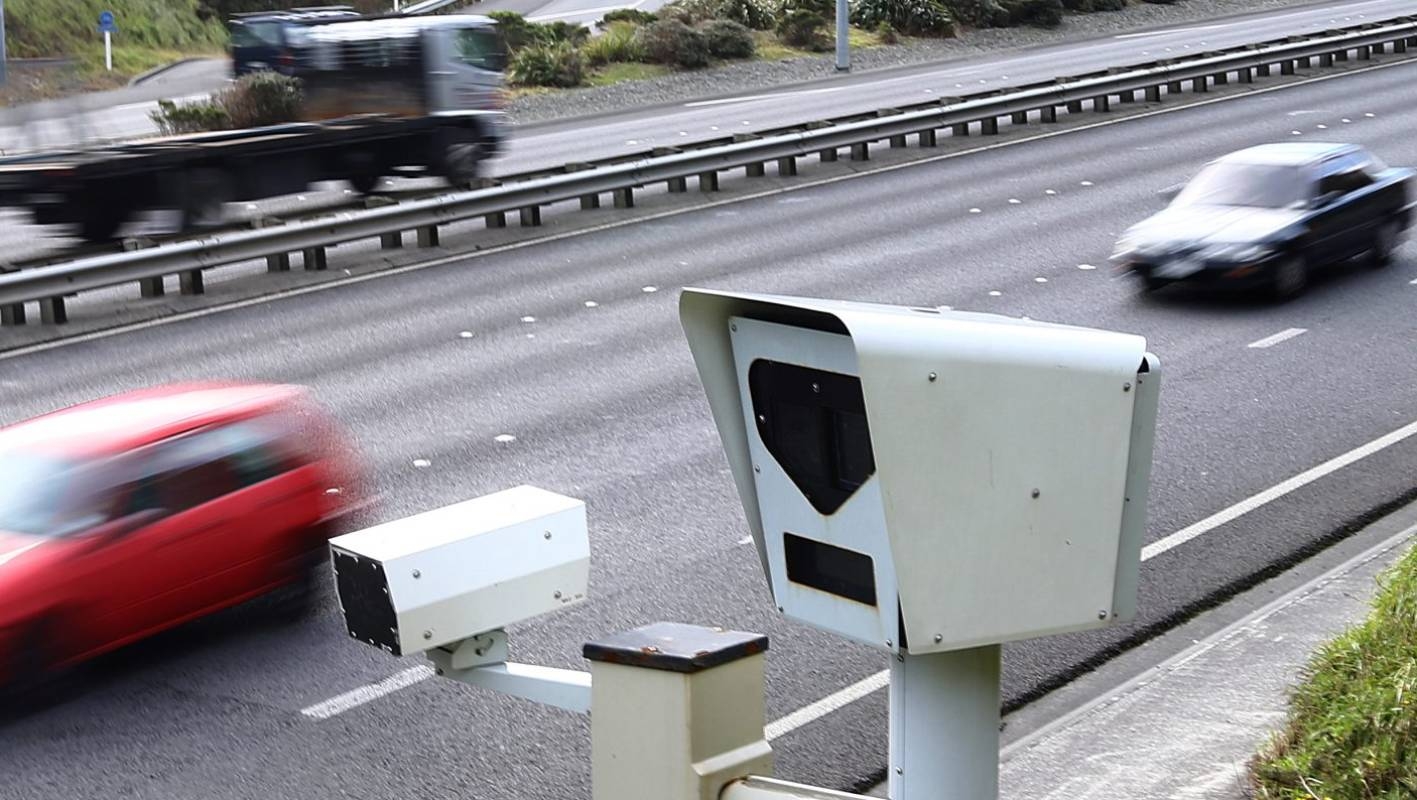 |
| Photo: Stuff.co.nz |
Speeding fines increase progressively from $30 for speeds less than 10 km/h over the limit, to a maximum fine of $630 for speeds up to 50km/h over the limit.
At more than 40 km/h above the speed limit you could also get a 28-day licence suspension.
At more than 50 km/h over the limit you could be charged with careless, dangerous or reckless driving.
The amount of your infringement fine will depend on how far over the speed limit you are going.
| How far over the speed limit | Infringement fine |
|---|---|
| 10km/h or less | $30 |
| 11-15km/h | $80 |
| 16-20km/h | $120 |
| 21-25km/h | $170 |
| 26-30km/h | $230 |
| 31-35km/h | $300 |
| 36-40km/h | $400 |
| 41-45km/h | $510 |
| 46-50km/h | $630 |
| The information on this page is a general guide only. It is not the source of the law and should not be used in place of authoritative legal documents. | |
In addition to a fine, you will also incur demerit points.
Infringement offences: Parking and speeding tickets, and other lower-level offences
Infringement offences include, for example, parking offences, toll offences, speeding and overloading offences, not having a current Warrant of Fitness or vehicle registration, and some lower-level drink-driving offences.
Note: Fines are collected and enforced by Collections Units, which are part of the Ministry of Justice. There are Collections Units in most District Courts (usually in the main cities and towns). The staff at the Collections Unit are called “Collections Officers”, or sometimes “bailiffs”. Where there is not a specific Collections Unit, fines are collected and enforced by the local District Court staff.
Demerit points are given for all speeding infringements (except those recorded by speed camera), some traffic offences and for breaching licence conditions, eg a learner driver unaccompanied by a supervisor or a restricted driver carrying unauthorised passengers.
Demerit points also apply to some alcohol-related infringements and offences, for example, points can also be allocated in conjunction with a court disqualification where the court chooses to disqualify a person for less than six months.
How long do demerits stay on your licence
Demerit points remain active on your licence record for a period of two years from the date of the offence. However, if the court disqualifies you for a period of six months or more, any active demerit points recorded on your licence record at the time will be cancelled and will no longer contribute to your active demerit point total.
Demerit suspension
If you accumulate 100 or more active demerit points within any two-year period, your licence will be suspended for a period of three months and you will not be entitled to drive. The suspension period begins as soon as the demerit suspension notice is served on you by the Transport Agency, the police or an authorised agent of the Transport Agency. Any active demerit points recorded on your licence record at the time will be cancelled and will no longer contribute to your demerit point total.
At the end of your demerit suspension, you’ll be unlicensed and not entitled to drive until you’ve reinstated your licence.
Demerit points for speed related offences (excluding speed camera offences)
| General description of offence | Demerit points |
|---|---|
| Exceeding the speed limit fixed by not more than 10 km/h | 10 |
| Exceeding the speed limit by more than 10 km/h but not more than 20 km/h | 20 |
| Exceeding the speed limit by more than 20 km/h but not more than 30 km/h | 35 |
| Exceeding the speed limit by more than 30 km/h but not more than 35 km/h | 40 |
| Exceeding the speed limit by more than 35 km/h | 50 |
| Using, in a motor vehicle, equipment that interferes with operation of speed measuring device | 25 |
| Possessing, in a motor vehicle, equipment that is designed to interfere with operation of speed measuring device | 25 |
| Exceed speed for stopping distance | 20 |
| Exceed speed for stopping distance on road not marked in lanes | 20 |
Demerit points for mobile phone related offences
| General description of offence | Demerit points |
|---|---|
| Driver uses mobile phone while driving a vehicle | 20 |
Demerit points for driver licence related offences
| General description of offence | Demerit points |
|---|---|
| Drives motor vehicle contrary to the GDLS conditions of his or her driver licence (excluding the requirement to display L plates) | 35 |
| Failure to display L plate as required | 25 |
| Drives a motor vehicle contrary to the non-GDLS conditions of his or her driver licence | 25 |
| Drives in breach of conditions applying to stage 2 of accelerated licensing process | 35 |
| Drives in breach of conditions applying to stage 3 of accelerated licensing process | 35 |
Demerit points for vehicle related offences
| General description of offence | Demerit points |
|---|---|
| Operating unregistered motor vehicle by driving or using it on road in contravention of section 242(1) of the Land Transport Act 1998 | 20 |
| Operating unlicensed motor vehicle by driving or using it on road in contravention of section 242(1) of the Land Transport Act 1998 | 15 |
| Operating motor vehicle on road without plates affixed | 20 |
| Using trade plate when not eligible | 20 |
| Operating motor vehicle displaying plates or licence not authorised for that motor vehicle | 25 |
| Operating motor vehicle displaying object or design likely to be mistaken for plates or licence authorised for that motor vehicle | 25 |
| Operating motor vehicle with plates or licence that is wholly or partially obscured or not easily distinguishable | 25 |
| Operating motor vehicle with temporary exemption granted under regulation 20 of the Land Transport (Motor Vehicle Registration and Licensing) Regulations 2011 | 20 |
| Failure to operate a motor vehicle with an exhaust system that complies with relevant noise output standards | 25 |
| Operate vehicle that creates excessive noise | 25 |
| Create excessive noise within or on vehicle | 25 |
Demerit points for alcohol and enforcement officer related offences
| General description of offence | Demerit points |
|---|---|
| Failure or refusal to remain for evidential breath test or blood test | 50 |
| Person younger than 20 driving or attempting to drive with excessive breath alcohol or blood alcohol concentration | 50 |
| Driving or attempting to drive with breath alcohol exceeding 250 micrograms but not exceeding 400 micrograms | 50 |
| Driving or attempting to drive with blood alcohol exceeding 50 milligrams but not exceeding 80 milligrams | 50 |
| Driving or attempting to drive with blood alcohol exceeding 50 milligrams but not exceeding 80 milligrams and failing or refusing to undergo an evidential breath test | 50 |
| Failure or refusal to wait for the result of a breath screening test or an evidential breath test | 50 |
| Failure to stop on request or signal of an enforcement officer, or on being followed by motor vehicle displaying flashing blue, or blue and red, lights or sounding a siren | 35 |
| Failure to remain stopped for an enforcement officer | 35 |
| Driving or attempting to drive when forbidden by an enforcement officer | 35 |
| Failure or refusal to accompany an enforcement officer when so required | 50 |
| Person fails to produce zero alcohol licence | 25 |
| Holder of an interlock licence or zero alcohol licence contravenes specified breath or blood alcohol level | 50 |
Demerit points for commercial driving related offences
| General description of offence | Demerit points |
|---|---|
| Person produces logbook with 1–5 omissions | 10 |
| Person produces logbook with 6–10 omissions | 20 |
| Person produces logbook with 11 or more omissions | 30 |
| Person fails to produce logbook | 35 |
| Requirement to produce approved alternative record to an enforcement officer on demand | 35 |
| Vehicle recovery service vehicles (requirement to complete and retain tow authorities) | 35 |
| Requirement on driver or contractor working within an alternative fatigue management scheme to keep records | 35 |
| Taxi driver must not accept hire in specified area unless taxi is fitted with an in-vehicle security camera system that is operating | 20 |
| Taxi driver must not accept hire in specified area unless taxi is fitted with an in-vehicle security camera system that has an unobscured view of the interior | 20 |
Demerit points for helmet related offences
| General description of offence | Demerit points |
|---|---|
| Drive or ride all terrain vehicle, motorcycle, or moped without securely fastened approved helmet | 25 |
| Drive or ride all terrain vehicle, motorcycle, or moped with damaged, etc, safety helmet | 25 |
Demerit points for pedestrian crossing and pedestrian zone related offences
| General description of offence | Demerit points |
|---|---|
| Driver fails to give way at pedestrian crossing | 35 |
| Driver enters pedestrian crossing when passage blocked | 35 |
| Driver of vehicle fails to give way to pedestrian on shared zone | 35 |
| Fail to comply with school patrol sign | 20 |
| Passing at school crossing point or pedestrian crossing | 20 |
Demerit points for rail related offences
| General description of offence | Demerit points |
|---|---|
| Driver fails to give way to rail vehicle approaching level crossing | 20 |
| Drive etc, cycle, vehicle, or animal across level crossing when risk of collision with rail vehicle | 20 |
| Fail to comply with stop sign at level crossing | 20 |
| Fail to remain stationary at stop sign until level crossing clear | 20 |
| Driver enters controlled area of level crossing when red signal displayed | 20 |
| Driver enters controlled area of level crossing when barrier arm lowered | 20 |
Demerit points for road rules related offences
| General description of offence | Demerit points |
|---|---|
| Fail to drive as near as practicable to the left of the roadway | 20 |
| Fail to allow impeded traffic to pass | 20 |
| Unsafe passing | 35 |
| Impeding vehicle when passing | 35 |
| Passing to right of no-passing line | 35 |
| Drive in emergency stopping lane | 10 |
| Fail to comply with handheld stop sign | 20 |
| Driver fails to stop at stop sign | 20 |
| Driver fails to give way at stop sign | 20 |
| Driver fails to give way at give-way sign | 20 |
| Driver fails to give way at give-way sign controlling a one-way section of road | 25 |
| Driver of vehicle changing lanes or turning fails to give way to vehicle not changing lanes or turning | 20 |
| Driver of right-turning vehicle fails to give way to an approaching left-turning vehicle | 20 |
| Driver at intersection fails to give way to vehicle approaching from right | 20 |
| Driver on terminating road approaching or crossing a T intersection fails to give way | 20 |
| Driver fails to give way to road user on footpath when entering/exiting driveway | 20 |
| Driver fails to give way to a vehicle on roadway when exiting driveway | 20 |
| Driver entering roundabout fails to give way | 20 |
| Drive too close to vehicle in front | 20 |
| Exceed speed for stopping distance | 20 |
| Exceed speed for stopping distance on road not marked in lanes | 20 |
| Driver permits riding dangerously | 20 |
| Careless or inconsiderate use of motor vehicle | 35 |
Infringement fines come from issuing authorities
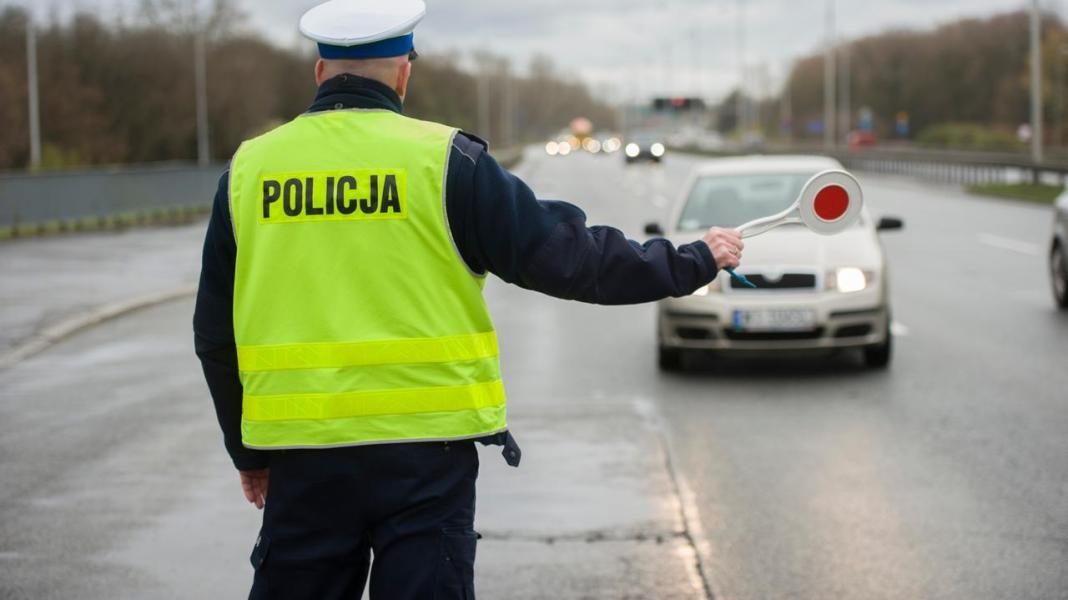 |
| Photo: Polish News |
Local councils, the Police and other authorities can issue you infringement fees for things like:
-speeding
-illegal parking
-not registering your dog.
If you don't pay the infringement fee by the due date, it’s transferred to the court and becomes a fine.
If this happens you will be sent a Notice of Fine, a court cost of $30 will be added to the original amount, and you have 28 days to pay the new fine amount to the court.
If you pay your fine with the issuing authority after the due date, the court costs of $30 will still apply.
Court-imposed fines are given by a judge or JP in court
A Judge or Justice of the Peace (JP) can fine you in court if you’re found guilty of an offence like drink-driving, disorderly behaviour or theft.
If this happens you will be sent a Notice of Fine and you have 28 days to pay the fine to the court.
If you want to dispute the infringement fee or speeding ticket
You can write to or email the Police Infringement Bureau to:
- ask for the ticket to be reconsidered
- tell them why you think you’re not responsible for the infringement and request a court hearing
- request a court hearing even if you admit you’re responsible for the infringement (you might have evidence to share that you think will change the penalty)
- ask for a copy of a traffic camera photo.
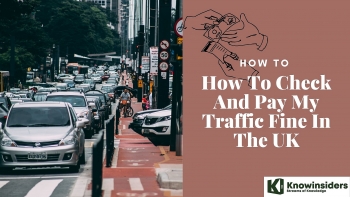 How To Check and Pay The Traffic Fine Tickets Online In The UK How To Check and Pay The Traffic Fine Tickets Online In The UK It is important to understand traffic rules and knowledge about fines and tickets when you decide to live in the United Kingdom. |
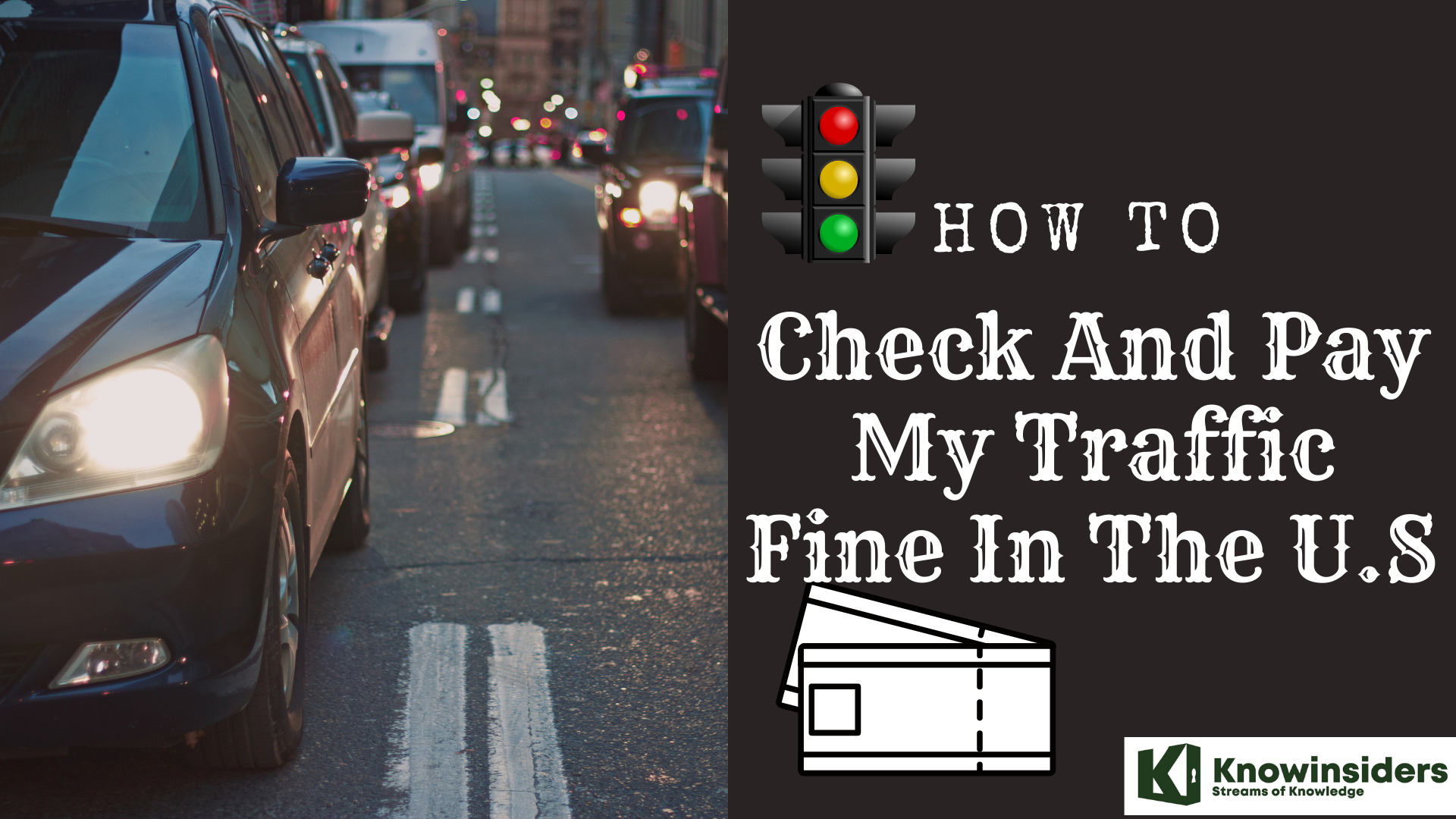 How To Check and Pay The Traffic Fine Online In The U.S How To Check and Pay The Traffic Fine Online In The U.S Understanding traffic fines in the United States might be complicated, especially when you get yourself caught for violating the laws. |
 10 Unique Natural Wonders in New Zealand 10 Unique Natural Wonders in New Zealand New Zealand is home to numerous natural breathtaking sights that offer visitors unique sceneries and feelings. |
 10 Biggest & Best Shopping Malls For Foreigner in New Zealand 10 Biggest & Best Shopping Malls For Foreigner in New Zealand Shopping Malls and Shopping Centres in New Zealand include a wide range of shops, outlet stores, banks, food stores, pet stores, or supermarkets all located ... |


